Hey there! If you've been putting in the extra effort at work and feel that your contributions deserve a little recognition, drafting a letter for a salary increment could be your next step. It's all about expressing your value in a way that resonates with your employer, highlighting your achievements and commitment to the team. In this article, we'll guide you through the essentials of crafting a persuasive request that gets you noticed. So, let's dive in and explore the tips and templates to help you secure that well-deserved increase!

Clear subject line and introduction.
A salary increment request is formally presented in a professional environment. Employees often base their requests on performance evaluations, industry salary standards, or recent contributions to company goals. This request typically outlines specific accomplishments, such as completed projects or measurable impacts, to justify the increase. Employees may compare their current compensation to industry benchmarks, such as those from the Bureau of Labor Statistics, to establish reasonable expectations. Clarity in expressing the desired increment percentage or figure is vital. Timing can impact the request significantly, with the best opportunities often coinciding with budget planning cycles or successful project completions.
Justification of performance and achievements.
A salary increment request should highlight specific achievements and performance metrics that demonstrate value to the organization. For instance, an employee might mention successfully leading a project that resulted in a 20% increase in revenue over the previous quarter. Achievements could also include developing a new process that improved efficiency by 30%, reducing costs significantly. Performance metrics like consistently exceeding quarterly goals or receiving positive feedback in performance reviews can further justify the request. Additionally, mentioning industry standards for similar roles in the local market, such as average salary benchmarks provided by sources like Glassdoor or Payscale, can strengthen the case.
Market comparison and industry standards.
When considering a salary increment, it is essential to analyze market comparison and industry standards. Current statistics indicate that the average salary for similar positions in the technology sector, particularly for software developers in Silicon Valley, is approximately $120,000 annually. Additionally, cost of living adjustments, especially in high-expense areas like San Francisco, further highlight the necessity for reevaluation. Recent studies show that companies such as Google and Microsoft are increasing their compensation packages to remain competitive, with raises averaging 10-15% since 2020. Furthermore, the rising demand for skilled professionals in machine learning and artificial intelligence reinforces the expectation for higher salaries to attract and retain talent. These data points establish a compelling argument for a salary increment in alignment with industry standards and market trends.
Specific salary increment request with rationale.
A salary increment request, often initiated by employees, can focus on specific circumstances that merit consideration. In many corporate settings, individuals may seek a raise after a significant achievement, such as leading a successful project that resulted in a 30% increase in revenue over six months. This increase can highlight the employee's contribution to the organization's bottom line. Additionally, industry salary benchmarks may show that the average salary for the position in similar companies within the same geographic region, like San Francisco, has risen by 15% in the past year, creating a case for adjustment. Furthermore, enhanced responsibilities or the acquisition of new skills, such as certifications in project management or technology specific to their role, can provide justification for a higher salary. Employees may document their previous performance reviews, illustrating consistent positive feedback and goal attainment over three consecutive evaluation periods, to strengthen their request.
Professional tone and closing with appreciation.
A salary increment request typically involves clear articulation of achievements and market comparison, accompanied by a respectful tone. This approach emphasizes the value brought to the organization and thanks the employer for their consideration. For instance, consider an employee who has consistently exceeded performance targets, contributing to the company's revenue growth by 15% in the last fiscal year. They may detail their accomplishments, highlighting leadership roles in successful projects, the implementation of cost-saving measures, and positive feedback from clients or colleagues. This employee should research industry salary benchmarks to present a compelling case that aligns with market standards. In conclusion, expressing gratitude for past opportunities and consideration for the request reinforces a positive relationship with management while acknowledging the organization's support of professional development.
Letter Template For Requesting Salary Increment Samples
Letter template of compensation adjustment request after additional responsibilities.
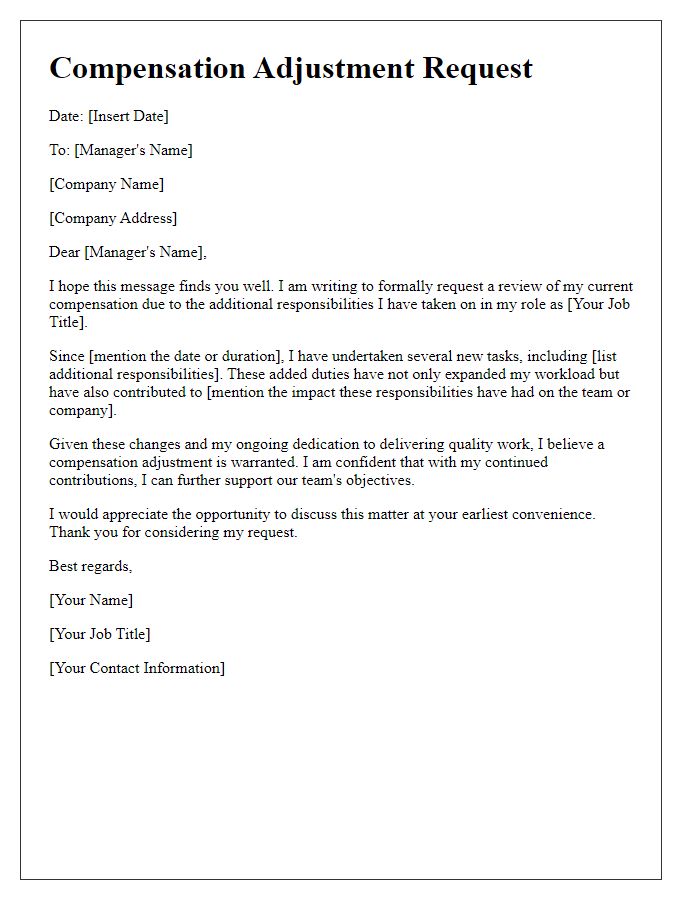
Letter template of salary revision request for exceptional project contribution.
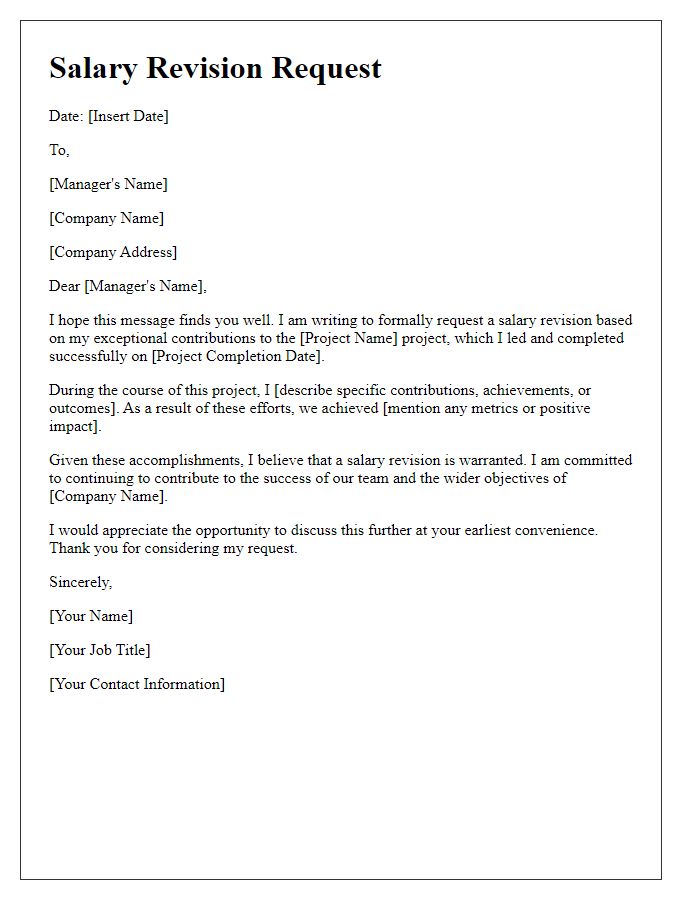
Letter template of wage enhancement appeal after successful team leadership.
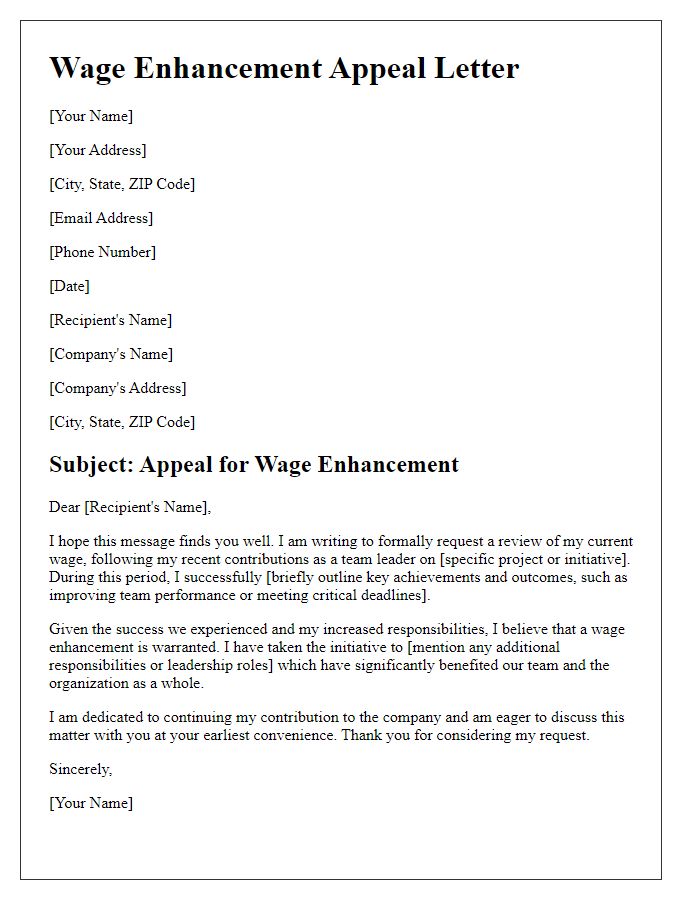
Letter template of remuneration increase request for industry benchmark alignment.
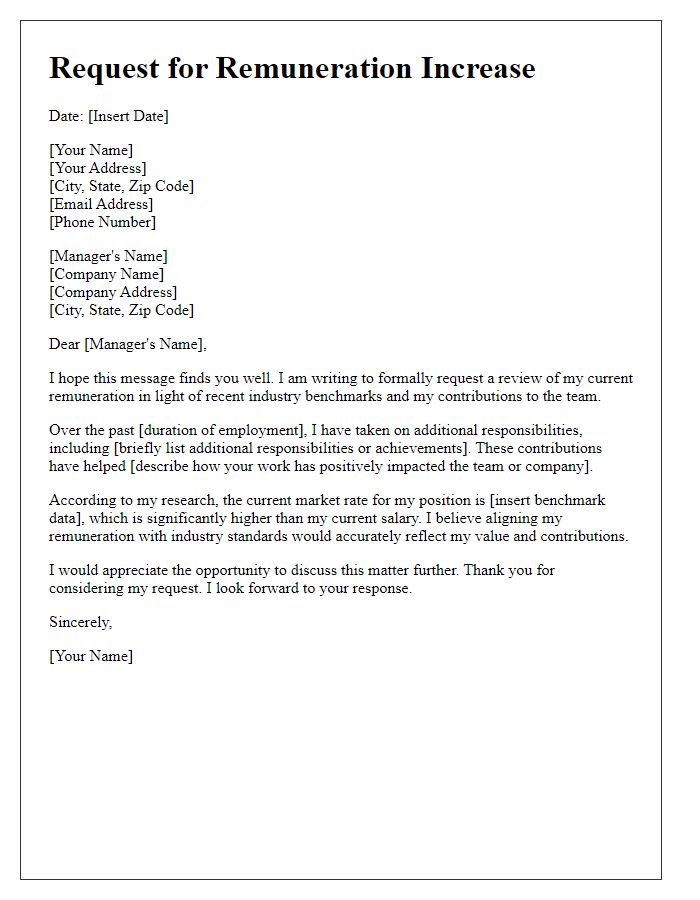
Letter template of salary elevation proposal following professional development.
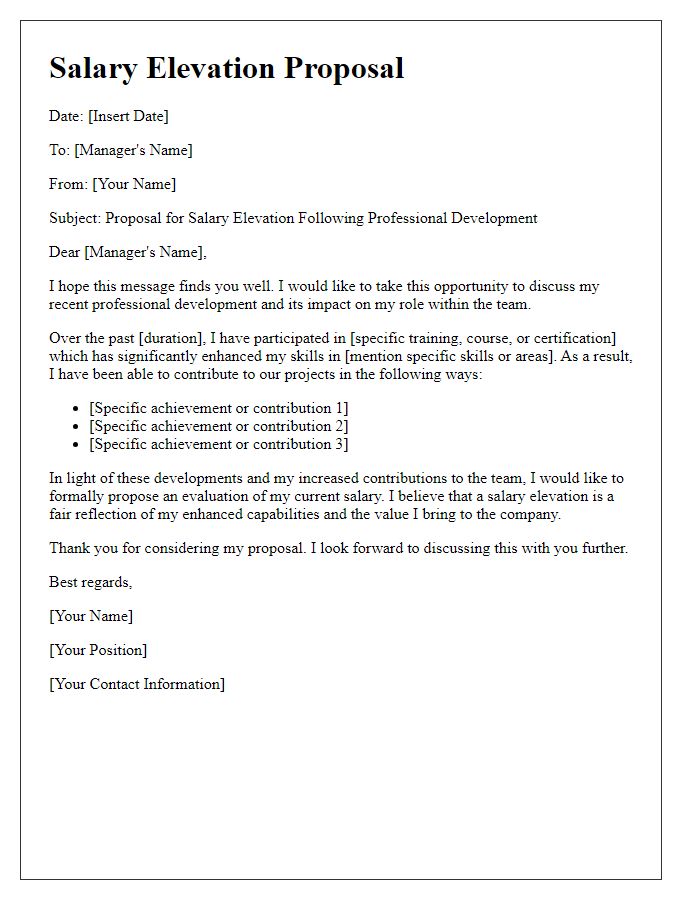
Letter template of salary adjustment request for positive performance feedback.
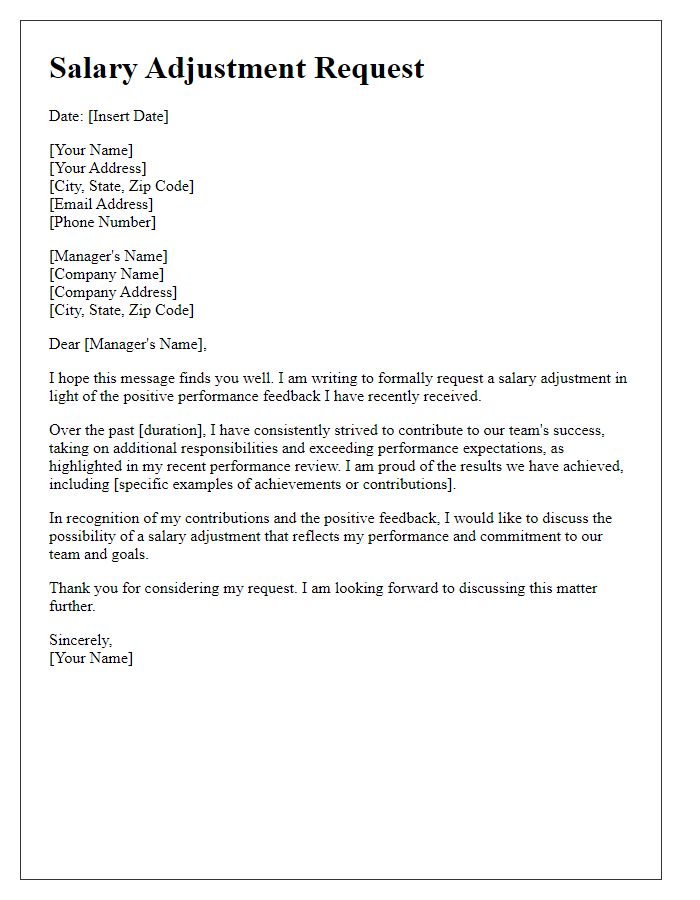

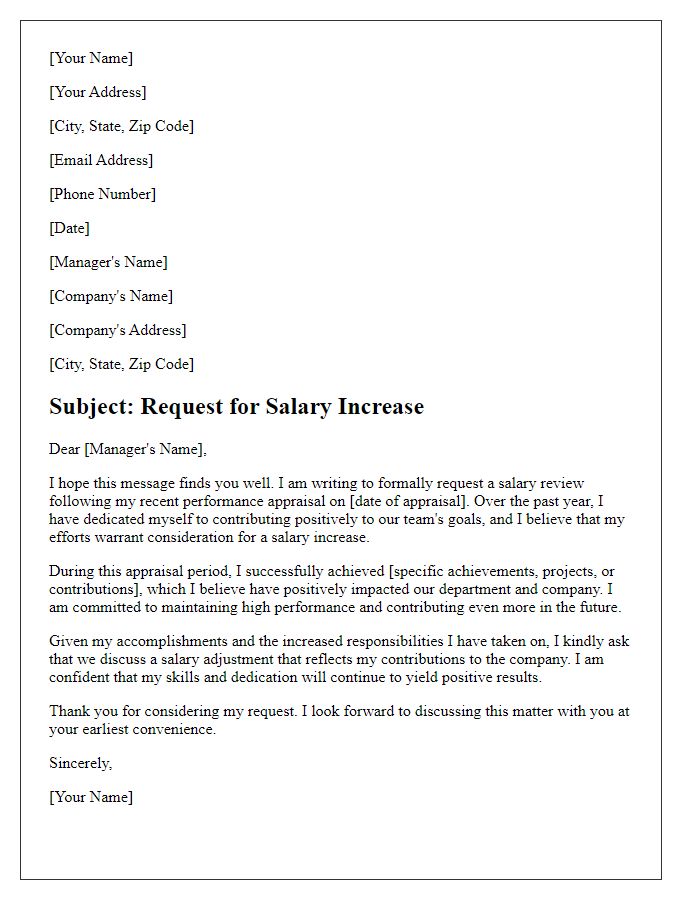
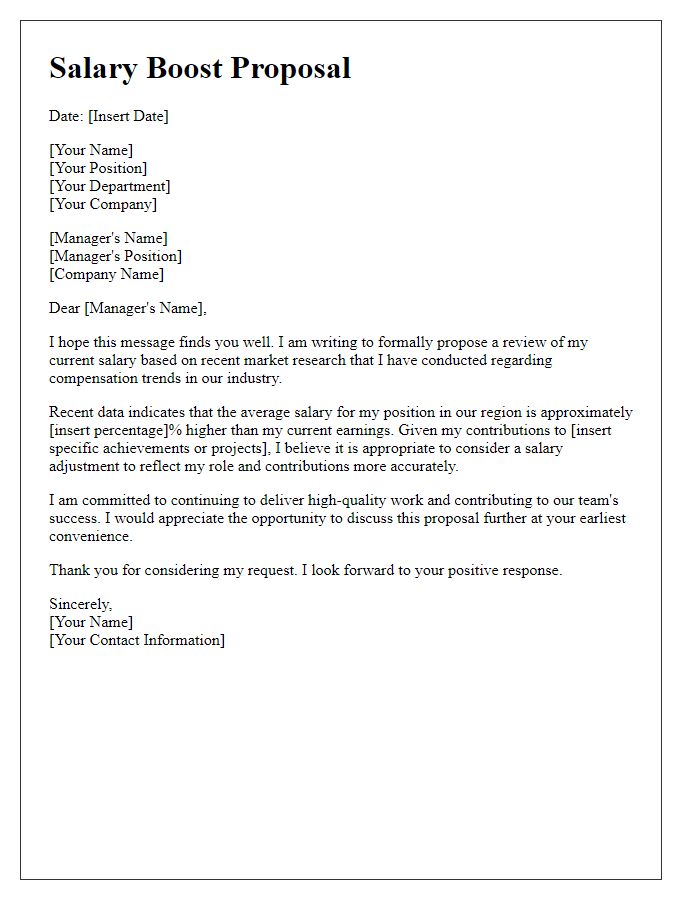
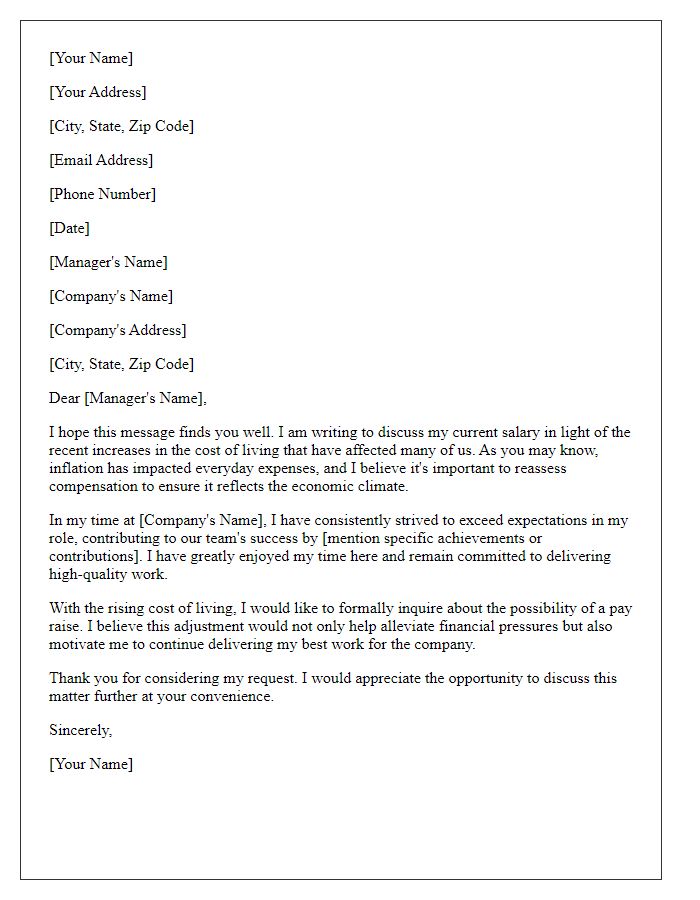
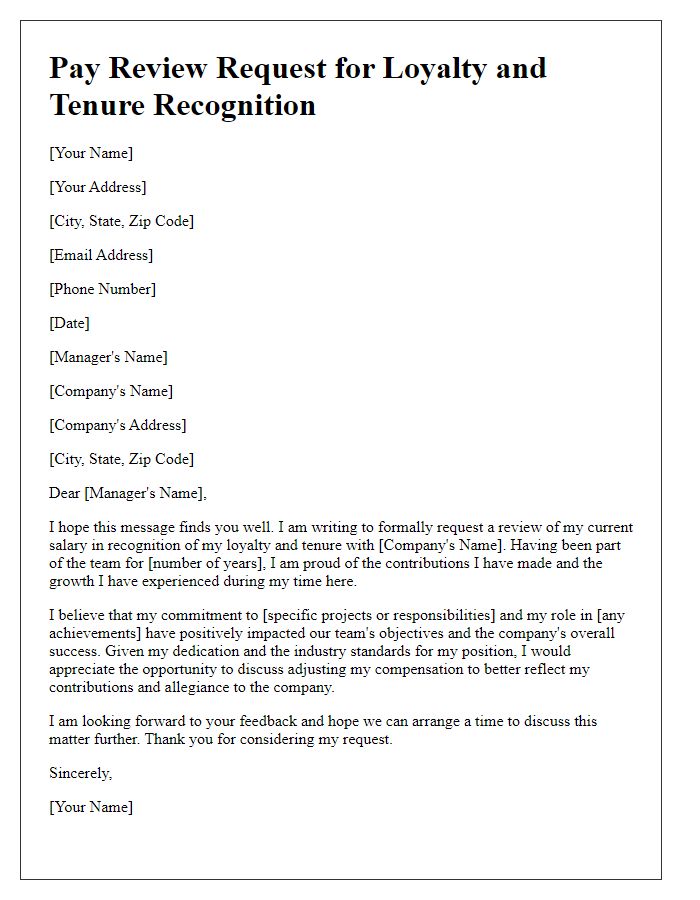


Comments